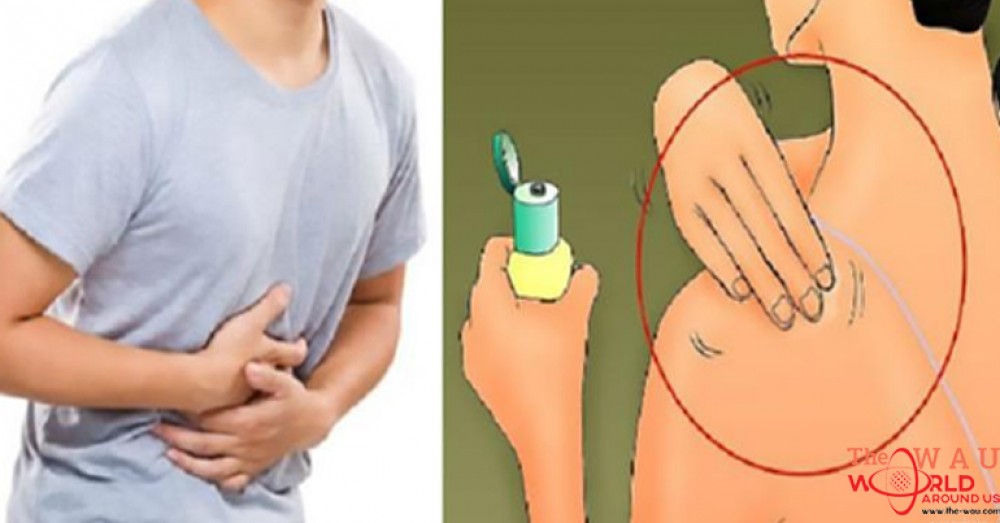The percentage of people suffering from liver disease is growing from year to year. Statistics show that liver disease is actually the fifth most common cause of death. Also, of all the diseases of the digestive tract, liver diseases are in second place according to the level of mortality.
There are different causes for liver damage, including genetic factors, or genetic disposition, chronic liver diseases such as liver cirrhosis, long exposure to toxic chemicals. It is important to understand the possible signs of liver damage in order to preserve their health and well-being.
1. Fatigue
Proper functioning liver is vital to our health. Among other things, the liver:
– purifies blood by metabolizing alcohol and drugs, and neutralizing the toxic substances
– synthesizing the basic body proteins, such as proteins that inhibit blood clotting, and proteins that fight infection and deliver nutrients to the blood
– manufactures cholesterol and converts it into essential substances that our body can use
– regulates energy supply by producing, storing and supplying glucose to our brain and body
– regulating the balance of hormones, including those from the adrenal and thyroid glands.
Various studies have shown that exhaustion and chronic fatigue are actually the most common symptoms of damaged liver. A lot of medical professionals have speculated that fatigue and exhaustion which are associated with diseases of the liver are formed as a byproduct of neurochemical changes and the brain, and due to hormonal imbalance. The worsening of fatigue and exhaustion occurs due to increased levels of toxic substances in the blood, because of which the liver has impaired function and cannot eliminate them.
2. Dry and irritated skin
Irritated skin and itchy skin is another potential sign of liver damage. To be healthy, our skin needs moisture, which can be provided through bodily fluids. When you are not getting enough fluids, it is normal for the skin to have different look, such as redness of the hands and feet, yellow mucous membranes (or jaundice), unexplained dark or bright spots in certain parts of the body.
3. Abdominal pain
If the liver is damaged, it is common to feel pain in the stomach. Patients describe the pain as “stabbing” or “throbbing” pain – it will disappear only with proper treatment of the basic problem. Long-term use of the drugs, chosen from you and even prescription drugs, can result in liver damage. If you have persistent pain which can be described as “a stabbing or throbbing,” and you use drugs for a long time, be sure to contact your doctor.
4. Nausea or vomiting
As mentioned earlier, one of the main functions of the liver is to detoxify, cleanse and expel toxic substance from body. When that function is impaired, there may be a bunch of problems, including sudden changes in metabolism and normal digestion. The liver is a large organ in the digestive system, so any liver problem will become a digestive problem as well. Nausea and vomiting are usually common because of toxins accumulation which cannot be eliminated by the liver.
5. Bruising
Another important role of the liver is the production of the protein of the enzyme, such as an enzyme, which prevents the blood clotting. When this function is impaired liver, it is common to see changes in the skin. In relation to this, the Institute for Diabetes and kidney and digestive organs says: “When the liver slows down or completely stop the production of proteins needed for blood clotting, a person will easily get bruises and bleeding.”
6. Bloated stomach
Liver damage prevents normal operation of the blood organs which creates the pressure in the surrounding veins. Surrounding veins are those veins which are responsible for transporting the blood to the spleen and intestines to the liver. Interruption of this process leads to a jump in blood pressure – a condition known as portal hypertension.
Due to portal hypertension, abdominal fluid builds up and this condition is called ascites. Ascites can also occur due to the inability of the liver to synthesize other blood proteins.
7. Jaundice
Liver damage can lead to a change in eye color and skin. This is due to the accumulation of bile pigment called bilirubin, the liver cannot process. Yellowing of the skin and eyes called jaundice. In addition to changes in appearance of the eyes, jaundice has other symptoms, such as dark urine, itching all over the body and cognitive impairment.
The good news is that the liver is a very flexible organ, which is often able to heal itself. Under the watchful eye of doctors, most liver disease has a positive prognosis. Therefore, if you notice any of these symptoms, consult your doctor. As with most diseases, and there is a rule that was previously detected, and the treatment is more effective and more efficient.
Share This Post












